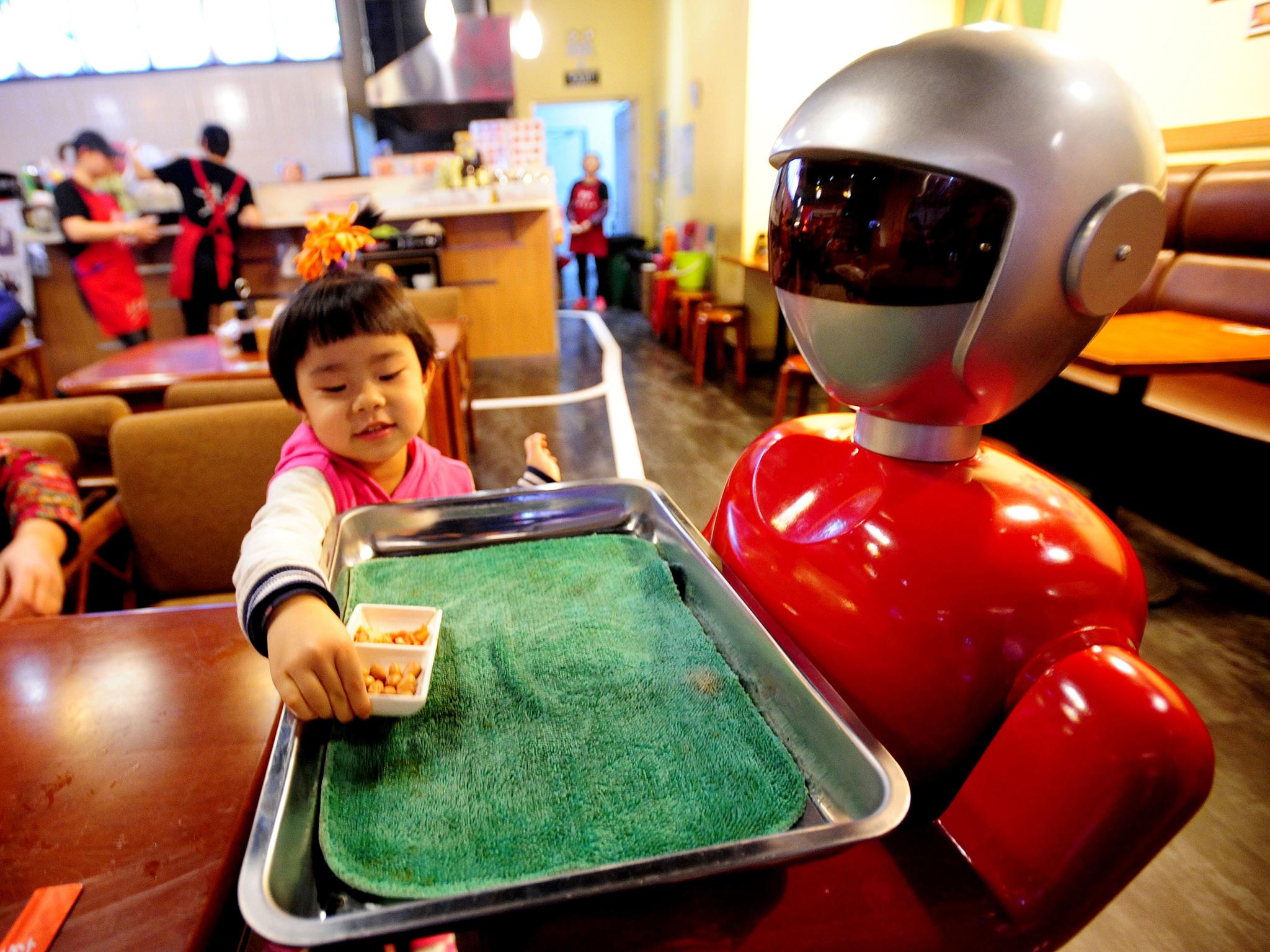Robots should be introduced into classrooms to attract more girls into coding, says technology leader
From Texas, Media Editor Ian Burrell reports on moves to attract more girls to technology

Your support helps us to tell the story
From reproductive rights to climate change to Big Tech, The Independent is on the ground when the story is developing. Whether it's investigating the financials of Elon Musk's pro-Trump PAC or producing our latest documentary, 'The A Word', which shines a light on the American women fighting for reproductive rights, we know how important it is to parse out the facts from the messaging.
At such a critical moment in US history, we need reporters on the ground. Your donation allows us to keep sending journalists to speak to both sides of the story.
The Independent is trusted by Americans across the entire political spectrum. And unlike many other quality news outlets, we choose not to lock Americans out of our reporting and analysis with paywalls. We believe quality journalism should be available to everyone, paid for by those who can afford it.
Your support makes all the difference.Robots should be introduced to primary-school lessons in order to show a more “humanistic” side of coding and to help attract more girls to the digital sector, a government-backed technology leader has said.
Gerard Grech, CEO of Tech City, a showcase network of UK-based technology companies, said an early introduction to robotic human models and vehicles would assist children as young as five in appreciating the value of learning how to write code, which is already part of the new computing curriculum for five- to 16-year-olds.
“We could go further and introduce robotics to make technology even more accessible regardless of gender – that’s where you make technology come alive,” Grech said. “The more physical something can be, the more it can be inspirational.”
Robotics has already been introduced into schools as part of an experiment in Estonia, which was one of the first countries to teach coding to young children and is the home of Skype.
Grech was talking from the South by Southwest (SXSW) conference in Austin, Texas, where the issue of sexism in the technology sector, and especially in gaming, was a big topic last week. Women games developers spoke of receiving death threats for taking up prominent positions in the industry.
Grech said the UK tech sector needed to do more to encourage women, and called for an overhaul of recruitment procedures to eradicate gender discrimination on interview panels. “We could introduce more attitude-testing as part of the interview process, and more initiatives to ensure there is no subconscious bias,” he said.
Grech also called for “more role models” to inspire girls to follow careers in technology. He highlighted the importance of British-based women such as Sarah Wood, co-founder of video advertising tech company Unruly, tech investor Sherry Coutu, Kathryn Parsons of tech campaign group DeCoded, American-born venture capitalist Eileen Burbidge and tech entrepreneur Wendy Tan White, founder of the software company Moonfruit.
“There’s still a lot of work to be done,” he said. “When you are a sector that relies highly on innovation, then diversity is key.”
Earlier this month, Baroness Lane-Fox, co-founder of Lastminute.com, spoke out in Parliament on the lack of senior women in the UK’s technology industry. “Fewer than one in 10 women are in leadership positions within the tech sector and, perhaps most shockingly, women only make up 4 per cent of software engineers,” she said.
Tech City travelled to SXSW with 20 British companies to promote the UK sector at an exhibition called Great Britain House. Among the companies present was Pavegen, which has developed paving stones that enables people’s footsteps to be converted into electricity. Grech said this was an application that could be demonstrated in primary schools to show the human value of coding.
At SXSW last week, American video game developer Brianna Wu showed an audience an image of a skeleton mask which was used as an icon by an internet troll who threatened to put a drill to her head.
“The abuse that I’ve undergone has been extreme,” said Ms Wu who has received more than 200 death threats and, like the feminist critic Anita Sarkeesian, has been targeted by the underground “#Gamergate” movement, which claims to be protecting male video-game enthusiasts against what it claims as unfair smears that the sector is prone to misogyny.
The SXSW sessions nearly did not take place as two planned conference events – including a panel called Level Up: Overcoming Harassment in Games – were cancelled in October over fears of violence. The session to which Ms Wu contributed – called Is a Safer, Saner and Civil Internet possible? – took place in a hotel with strict security and a police presence. She complained that the YouTube and Reddit platforms were culpable for their failure to moderate sexist comments.
Several studies, including work carried out by Pew Research Centre in December, have shown that women are equally as active in video-game playing as men.
Jenny Richards, of UK organisation Women in Games, said that Gamergate had not crossed the Atlantic and that the key challenge was to get British girls to consider a career in the sector. “I think there’s a big necessity to show younger females the possibilities of the games industry,” she said. Once there, she argued, they would find it “incredibly welcoming of females, for the most part”.
Join our commenting forum
Join thought-provoking conversations, follow other Independent readers and see their replies
Comments